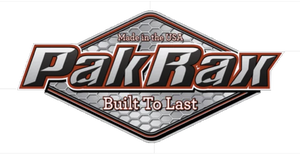
Sequoia vs. 4Runner: Choosing the Perfect Overlanding Vehicle for Your Family
When it comes to embarking on adventurous journeys and exploring the great outdoors, having the right vehicle for your overland setup is essential. For families looking to take on the thrilling world of overlanding, two popular options often come to mind: the Toyota Sequoia and the Toyota 4Runner. Both vehicles offer ruggedness, reliability, and ample space for an unforgettable family overlanding experience. In this article, we will explore the pros and cons of each vehicle to help you make an informed decision.
Toyota Sequoia: Power, Comfort, and Versatility
Pros:
-
Spacious Interior: The Toyota Sequoia provides generous seating for up to eight passengers, making it ideal for larger families or those who prefer extra room. It offers a comfortable and luxurious cabin, ensuring a pleasant ride even during long off-road trips.
-
Towing Capability: If you plan on bringing along a trailer or any heavy gear, the Sequoia's robust V8 engine and impressive towing capacity of up to 7,400 pounds (when properly equipped) will handle the load with ease. This feature is particularly useful for families who want to bring additional equipment or recreational vehicles.
-
Off-Road Prowess: Despite its size, the Sequoia performs admirably off-road. With a well-built suspension system, skid plates, and available four-wheel drive, this SUV can handle rough terrain and moderate off-road trails. It offers a sense of security and confidence while exploring the wilderness with your family.
Cons:
-
Fuel Efficiency: The Sequoia's V8 engine provides power but sacrifices fuel efficiency. It tends to consume more fuel compared to other vehicles in its class. This aspect should be taken into consideration, especially during long trips or when covering long distances.
-
Maneuverability: Due to its larger size, the Sequoia might be more challenging to maneuver in tight spaces or congested urban areas. This can pose minor inconveniences in terms of parking or navigating narrow trails during your overlanding adventures.
Toyota 4Runner: Rugged Durability and Off-Road Excellence
Pros:
-
Off-Road Capability: The Toyota 4Runner is renowned for its exceptional off-road capabilities. It boasts a body-on-frame construction, advanced suspension, and various off-road features like crawl control and a locking rear differential. These components make it highly capable of tackling challenging terrains and steep inclines.
-
Reliability: The 4Runner has a solid reputation for its durability and longevity. Built to withstand rough conditions, it can be a dependable companion for numerous overlanding trips, ensuring peace of mind for families venturing into remote areas.
-
Resale Value: Toyota vehicles, in general, have a strong resale value, and the 4Runner is no exception. This factor makes it an appealing option for families who may decide to upgrade or sell their vehicle in the future.
Cons:
-
Interior Space: While the 4Runner offers seating for up to seven passengers, the interior can feel slightly cramped, especially in the third row. The limited legroom may be a consideration for families with taller individuals or those seeking greater comfort during extended journeys.
-
Fuel Efficiency: Similar to the Sequoia, the 4Runner's fuel efficiency is not its strong suit. The rugged design and emphasis on off-road capabilities come at the cost of higher fuel consumption, which is worth considering for families prioritizing fuel economy.
Conclusion: Both the Toyota Sequoia and the Toyota 4Runner have their distinct advantages and disadvantages when it comes to overlanding with your family. The Sequoia excels in terms of interior space and towing capacity, providing a more comfortable and versatile utility where the 4Runner is more agile but has a little less hauling capacity and interior space.
